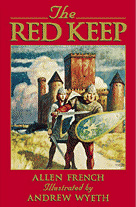The Great Siege of Malta of 1565 pitted the all-conquering armies of the Turkish sultan Sulieman the Magnificent against a determined band of Christian defenders led by about 1,000 Knights of St. John. Captained by their gallant Grand Master, Jean Parisot de la Valette, the Christians were determined to fight to the last man for Malta. Though outnumbered more than five-to-one, the Knights and their Maltese allies held the Turkish host and their gigantic artillery pieces at bay for over three months in one of the most heroic displays of military valor since Thermopylae. I decided to read this book because the siege is an amazing moment in history, and the other fictionalized account of it which I read previously (Angels in Iron by Nicholas Prata) was a memorable work which vividly brings to life the Knights of Saint John as well as their Turkish antagonists.
The Religion by Tim Willocks, on the other hand, chooses this epochal siege as the grand setting for a tawdry tale that does violence to both history and good taste. The main protagonist (Tannhauser) is a former Christian, former Janissary and current new-agey libertine materialist with a penchant for wenching, opium, and extreme violence. All of the antagonists, without exception, are Roman Catholic priests and monks--including the shadowy figure of one Michele Ghislieri who would become Pope Saint Pius V. The "Black Legend" looms large in this novel, and the Inquisition (cue scary organ music), imagined as KGB-like spy network that engages in wanton extralegal brutality, plays a major role--at one point even conspiring to murder Grand Master La Valette himself.
I will give the author credit in that the novel is, for the most part, decently written and he has done enough research to get the basic facts and timeline of events correct. The Religion, however, suffers from the following flaws that made it almost unreadable in my opinion:
- The fictional main character is a sort of deus ex machina responsible for all the defenders' winning stratagems. Rather than give La Valette and his knights credit for their amazing strategic and tactical vision as recorded by history, the author makes them hyper-violent pawns who put Tannhauser's brilliant ideas into practice. It's a good thing this fictional superman showed up, or else the battle would have gone quite differently. Sigh.
- Unnecessary and ubiquitous sex scenes. If you can't stomach sex acts described in grotesque detail, skip this book because there are many such scenes. Way too many. And seriously tacky ones, too. And like a cheesy romance novel, the sex scenes often happen in wholly ludicrous circumstances. There is also a hideous rape scene. By page 100, the author has pretty much exhausted his catalog of terms for a woman's private parts.
- Strange portrayal of women characters. As an unsurprising adjunct to the above, the main women characters in the book are basically two-dimensional sex-toys who both manage to fall for the hero at the same time and yet not despise each other. Given the author's understanding of "love" as little more than an answer to the urgent call of one's generative organs, this is perhaps not surprising
- A slavish dedication to 21st century moral and political trends that made the plot predictable. For example, Catholicism is treated with a contempt that has become practically de rigueur for novelists these days. The author makes up atrocities out of whole cloth to sully the Catholic characters--particularly the Knights. The Catholic characters are all either bloodthirsty fanatics, ignorant barbarians, base hypocrites, scheming churchmen, or deluded simpletons who come to their senses thanks to the syncretist wisdom of Tannhauser. At the same time, Islam is handled with kid gloves. While the author moralizes endlessly about the warlike activities of the Christians, he offers no such condemnation of the fact that the Turks are waging an aggressive war of conquest in the first place. The process of "recruiting" Janissaries was glossed over. The term "bastinado" is mentioned but never explained. The few Turks who are given more than a cursory treatment are noble intellectuals or joyful, kind-hearted common folk. Once you understand that these views are built into the plot, the outcome of the tale will be unsurprising.
In summary, if you are a secular sort who enjoys historical fiction that's loaded with sex and takes plentiful cheap-shots at Catholicism, you'll no doubt love this book. If you'd prefer to read a novelization of the Great Siege which is dramatic, intense and close to the history without all the excess baggage, I would heartily recommend Angels in Iron as mentioned above.



.JPG)
